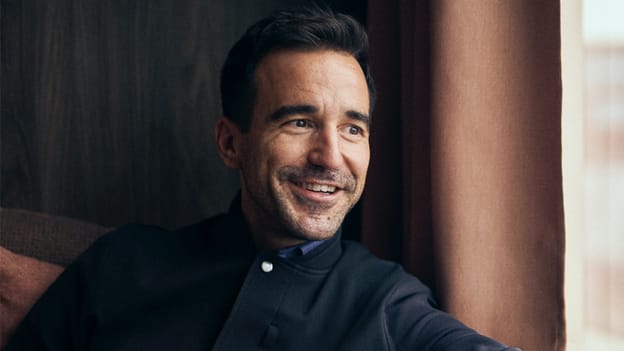Never underestimate the power of human adaptability

Tomas Chamorro-Premuzic is the Chief Talent Scientist at ManpowerGroup, a professor of business psychology at University College London and at Columbia University, and an associate at Harvard’s Entrepreneurial Finance Lab.
He is the author of Why Do So Many Incompetent Men Become Leaders? (and How to Fix It), upon which his TEDx talk was based.
Here are the excerpts of the interview.
What’s the most striking thing about how businesses and governments responded to the crisis, according to you?
What striking is the public and media reaction: surprise, apparently, at the fact that people are usually better off when their leaders are smart, kind, and honest. Who would have thought: leadership matters and competent leadership is quite helpful in difficult times! Perhaps as obvious is the fact that when leaders are incompetent or dishonest, it is a lot harder for them to hide or get away with it when there is a global crisis or real challenges to handle. And yet, it is not all about leadership: followership is perhaps even more important. Cultures that are disciplined, altruistic, collectivist, educated, and cautious are of course better able to cope with a pandemic, so even if you exported inept leaders to them they will still probably handle things pretty well. For example, I think if you switched Merkel and Bolsonaro it would still be true that Germans deal with the pandemic better than Brazilians. Culture, institutions, and followers are more influential than leaders, particularly incumbent heads of state.
With the pandemic disrupting businesses and causing economic downturns, do you think it’s to reimagine the role of a leader? Is it time to change the perspective?
No. We just need competent people in charge and they have always looked the same: smart, rational, unselfish, humble, empathetic, curious, calm, and not in it for themselves or their own ego-mania, but interested in making a difference for others and making others better. But we don't get these types of leaders often. If we did, we wouldn't be asking for a different type of leader so often now. If leadership weren't in crisis, we wouldn't demand a different, better, type of leadership during a crisis. Great leaders temper crises, bad leaders create them.
Also Read...
- An interview with Google’s Chief Innovation Evangelist Dr. Frederik G. Pferdt
- World Bank’s Annette Dixon on how COVID-19 will change the world forever
- Intel's CPO on reimagining the way we work
The catastrophic year is coming to an end and we have no idea about when things will get normal. What trends will define the future of work?
The same trends that were already there beforehand: more fluidity, less structure, more focus on talent and soft skills, less focus on hard skills and expertise, more disruption, more reliance on tech, which at the same time makes the humane aspects of talent and leadership more critical, and artificial and human intelligence collaborating to produce something that should look like progress, assuming we can keep in mind ethics and optimize for many rather than the few.
You have written several books on a range of topics. Can you share some insights for people and talent leaders as they plan for the year 2021 to become more resilient?
- Get the basics right (if you understand what always worked, and pay attention to science-based recommendations, you don't need to worry about new trends so much). Leaders often obsess over the future to avoid dealing with present problems, don't fall in this trap.
- If you manage people well and have a strong and fair culture, you won't need to demand so much resilience from your employees and leaders (resilience is a cure to a problem that can be avoided by doing things well, to begin with)
- You will never get it perfectly right, but you can find better ways of being wrong: the secret to success is to make the best decision you can and then learn to improve, or even change plans when things don't work out. Learning from your mistakes (and successes) is what makes you great in the long run.
How important is diversity and inclusion in today’s time given that businesses are struggling with a variety of challenges and shifting business priorities? Does the crisis offer us an opportunity to fix the inequality gaps we see in society?
As a moral imperative, it is clearly essential, unless you don't care about a just or fair world, and have no empathy for those who suffer. For business, it is essential if you want to remain competitive and nurture innovation and critical thinking, but it all starts with inclusive leadership: without it, you will see little ROI to diversity.
Do you see chaos in the latest tech innovations being leveraged across organizations? Or do you see a synergy? Do you think COVID-19 has forced organizations to leverage data and analytics to make better decisions? How are large organizations making critical decisions?
We can criticize technology as much as we want, and it’s always good to be critical. However, let's also agree that thanks to tech, which is the product of human ingenuity and imagination, things have been far more manageable than they could have been. We may complain about Zoom fatigue but it is really a first world problem, and the fact that we have managed to remain as or even more productive in some areas is truly remarkable so let's take some credit for inventing a super useful tool that has kept much of the world connected and productive and will continue to do so.
The use of technology accelerated by the pandemic has led to a pressing need for organizations to adapt fast. Many businesses may not have access to people with the right skill sets. What’s your advice for them?
This was a problem before the pandemic, and with any phase of tech innovation. The only solution is to upskill and reskill and even pre-skill: understand that tech is just a tool and you need the relevant skills and expertise to make the most of those tools or turn them into drivers of progress.
What’s your biggest learning from the pandemic? Be it about technology, leadership, well-being, or anything and why it matters?
Never underestimate the power of human adaptability.
Read more such stories from the January 2021 issue of our e-magazine on 'Outlook 2021’
You can find Tomas on Twitter: @drtcp or at www.drtomas.com.














